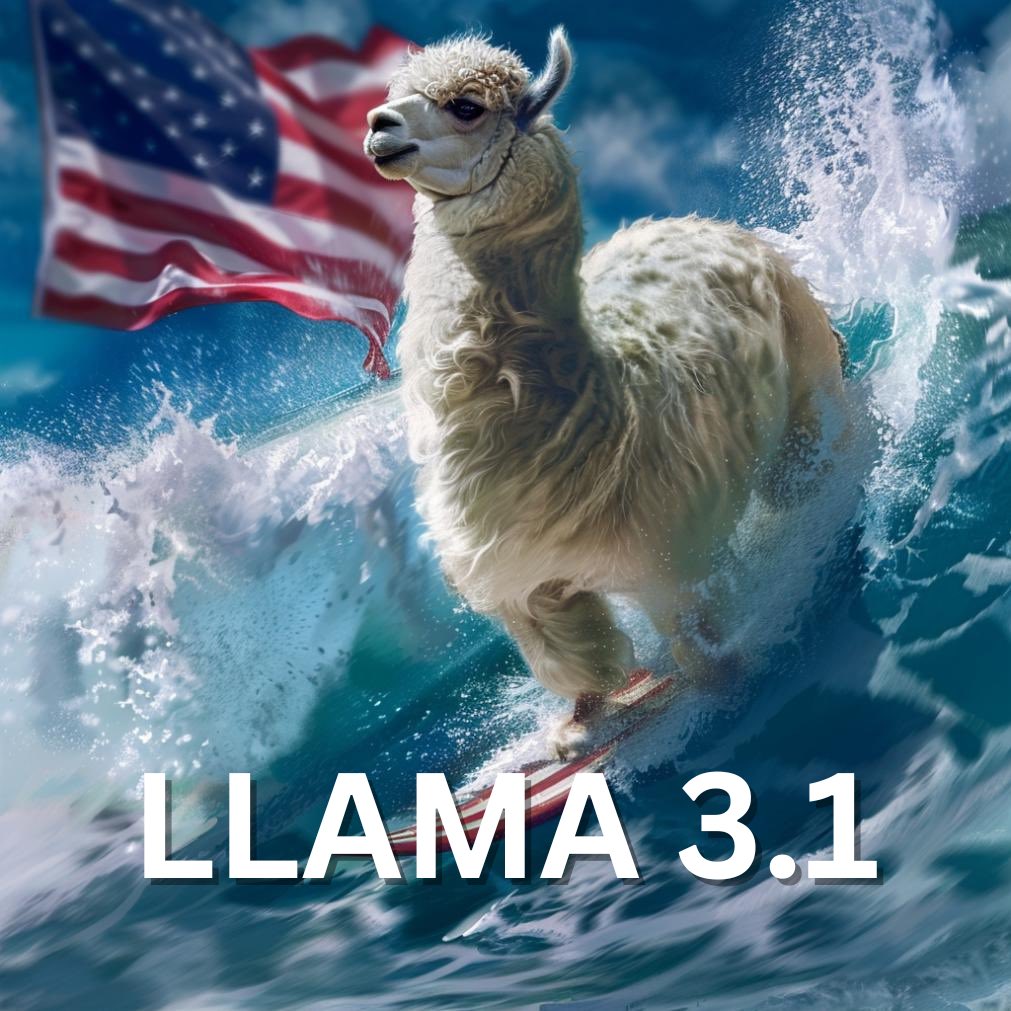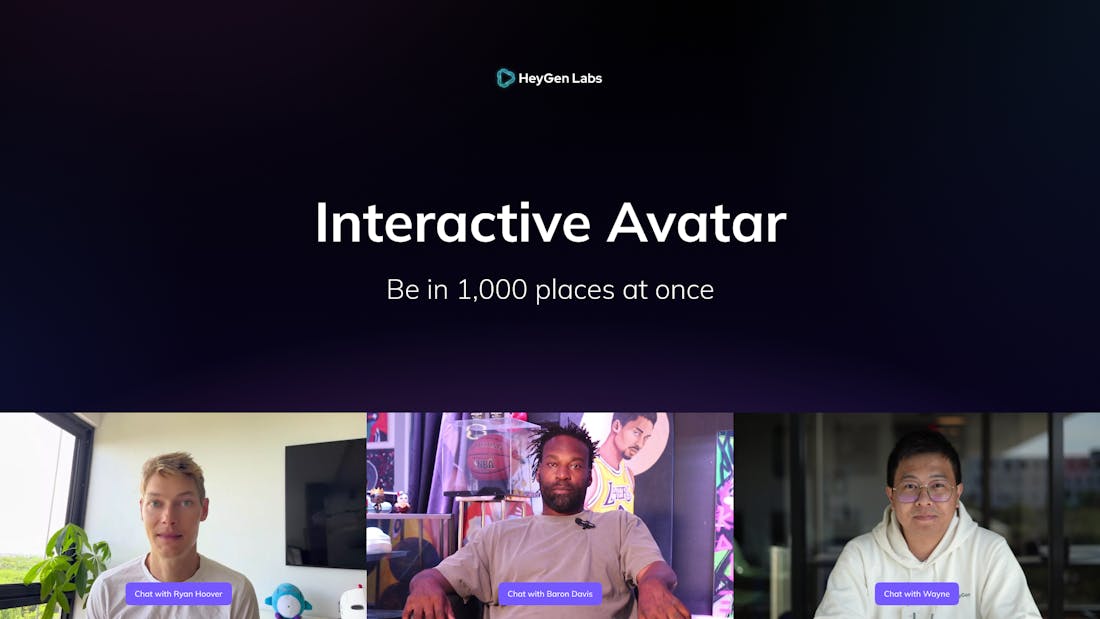- Superpower Daily
- Posts
- The first GPT-4-class AI model anyone can download has arrived: Llama 405B
The first GPT-4-class AI model anyone can download has arrived: Llama 405B
Here’s What Happens When You Give People Free Money
In today’s email:
🔥 Meta AI gets new ‘Imagine me’ selfie feature
🎮 AI Is Already Taking Jobs in the Video Game Industry
👾 Mark Zuckerberg imagines content creators making AI clones of themselves
🧰 7 new AI-powered tools and resources. Make sure to check the online version for the full list of tools.



Meta has released its largest open-source AI model, Llama 3.1 405B, with 405 billion parameters. This model, trained using 16,000 Nvidia H100 GPUs, aims to compete with proprietary models like OpenAI's GPT-4o and Anthropic's Claude 3.5 Sonnet. Llama 3.1 405B supports various text-based tasks, such as coding, math questions, and summarizing documents in multiple languages. Despite its impressive capabilities, it requires substantial hardware to run efficiently and is primarily intended for model distillation and synthetic data generation. Meta is also launching updated versions of smaller models, Llama 3.1 8B and Llama 3.1 70B, with larger context windows.
To enhance the performance and utility of Llama 3.1 405B, Meta used a refined dataset of 15 trillion tokens and incorporated synthetic data generated by other AI models. This new model also features improved training data pipelines and quality assurance measures. Meta's approach includes developing multimodal capabilities for future Llama models, although these are not yet ready for release. The company has updated Llama's licensing to allow developers to use outputs from the Llama 3.1 models to create third-party AI generative models, while still imposing deployment constraints for large-scale applications.
Meta's strategy involves distributing tools and models for free to build an ecosystem, similar to the approach taken by OpenAI and Anthropic. This move aims to drive down competitors' prices and integrate improvements from the open-source community into future models. Meta's CEO, Mark Zuckerberg, envisions widespread access to AI benefits through these tools. However, the company faces challenges, including energy-related reliability issues due to the high power consumption required for training large AI models. Despite these hurdles, Meta is committed to advancing its position in the generative AI market.

OpenResearch, funded by OpenAI CEO Sam Altman, conducted a comprehensive study on giving unconditional cash grants to impoverished Americans, releasing its initial results. The study provided $1,000 monthly to 1,000 individuals for three years, aiming to understand the broader economic impacts. Participants mainly used the funds for basic needs like food, housing, and transportation. Despite these benefits, the $36,000 over three years did not significantly enhance recipients' physical well-being or long-term financial health. The results showed that while the cash transfers were not spent on vices like drugs or alcohol, they did not solve deeper issues of income inequality and job displacement due to automation.
The study revealed diverse impacts on the participants' lives, including increased spending on others and more healthcare utilization. Some recipients, particularly Black participants and women, showed a higher tendency to start or assist in starting businesses. The cash grants also led to increased independence, with many moving out on their own. On average, recipients spent 81% of the funds on housing and essentials, 22% on leisure, and incurred some debt. However, this increase in debt, combined with negligible changes in credit access, did not improve the long-term financial positions of the recipients. While there were initial increases in savings and improved financial sentiment, work participation slightly decreased as the free cash provided a cushion.
Critics of unconditional cash assistance argue that such programs may encourage dependency on support rather than future investments. The study found that the amount of work withdrawn from the market was substantial, with some recipients choosing to take lower-paying, more meaningful jobs or taking breaks from work. Despite no significant improvements in physical health and welfare, the study highlighted that recipients valued time away from work, demonstrating the flexibility and agency cash grants provide. The findings suggest that while money can buy time, it may not be a comprehensive solution to broader economic challenges.

In spring 2023, Activision Blizzard began implementing generative AI tools like Midjourney and Stable Diffusion for concept art, stirring anxiety among employees about job security. This anxiety was well-founded as the company soon laid off many 2D artists and began promoting AI use throughout the organization, despite initial assurances that AI would not replace human jobs. The wider video game industry, already dealing with mass layoffs, is increasingly turning to AI, leading to concerns about job displacement, deskilling, and the long-term impact on creative professions.
The trend of using AI in the gaming industry is accelerating, with nearly 90 percent of video game companies having already implemented generative AI programs. These tools are primarily used for creating 2D images, storyboards, and character designs, posing a significant threat to artists and designers. Studios like Riot Games and Blizzard have been experimenting with internal AI systems, though the results have been met with mixed reactions. Meanwhile, some companies have faced backlash for job postings that require expertise in generative AI tools, highlighting the tension between management's cost-cutting measures and the creative community's concerns.
Despite the industry's growing reliance on AI, the technology's impact remains contentious. Workers fear that the pursuit of profit is driving the adoption of AI at the expense of quality and job security. This has led to increased interest in unionization among game developers, who seek to establish protections against the unchecked use of AI. Ultimately, the future of AI in gaming will depend on how much control and consent workers can secure over its implementation, ensuring that it enhances rather than undermines their contributions.

Meta AI has introduced a new feature called "Imagine Yourself" which allows users to create stylized selfies. This AI model, in beta, can generate images based on a photo and a prompt like “Imagine me surfing” or “Imagine me on a beach vacation.” Additionally, Meta AI has enhanced its capabilities by integrating Llama 3.1 405B, a new model adept at handling complex math and coding questions, although users must manually switch to it and are limited in their weekly queries.
The enhancements aim to address the shortcomings noted by early reviewers, who found Meta AI's previous iterations struggled with tasks like web searches and basic queries. The Llama 3.1 405B integration is labeled as a “preview,” and users are required to switch manually. Meta AI also introduced new editing tools that allow users to modify images with prompts, such as changing a cat to a corgi, and will soon include an “Edit with AI” button for more fine-tuning options.
Furthermore, Meta AI is expanding its availability and functionality. The assistant will replace the Meta Quest VR headset’s Voice Commands feature, allowing users to ask questions about their physical surroundings. Meta AI now supports multiple languages, including French, German, Hindi, and Spanish, and is available in 22 countries, with new shortcuts for sharing AI-generated images across Meta apps.
Other stuff
Mark Zuckerberg imagines content creators making AI clones of themselves
Meta's AI assistant is coming to Quest headsets in the US and Canada
Mindmap of AI: Machine Learning vs Deep Learning vs LLM
LLMs can solve hard problems
Elon Musk sets 2026 Optimus sale date. Here’s where other humanoid robots stand.
All your ChatGPT images in one place 🎉
You can now search for images, see their prompts, and download all images in one place.


HeyGen Interactive Avatar - Meet Product Hunt founder Ryan Hoover's 24/7 digital twin

Parea AI - Aligned & reliable LLM evaluations

YouOrMe - Who does your child resemble more? Let AI settle the debate

Revideo - Create videos with code
Zerox - Zero shot pdf OCR with GPT-4o-mini

Invue Prep - Mock interviews with AI
Super Upscalar - AI Image Upscaler and Enhancer



How did you like today’s newsletter? |
Help share Superpower
⚡️ Be the Highlight of Someone's Day - Think a friend would enjoy this? Go ahead and forward it. They'll thank you for it!
Hope you enjoyed today's newsletter
Did you know you can add Superpower Daily to your RSS feed https://rss.beehiiv.com/feeds/GcFiF2T4I5.xml
⚡️ Join over 200,000 people using the Superpower ChatGPT extension on Chrome and Firefox.
OR

